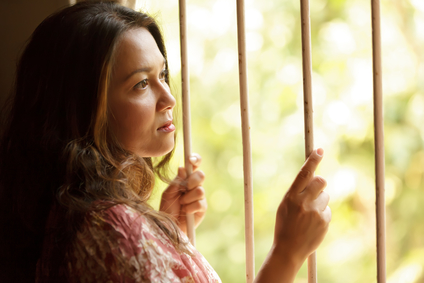Untreated depression can create a wall between couples, challenging your partnership and making it hard to find a healthy and supportive dynamic. While every relationship is different, the nature of depression can be challenging for your partnerships, making it harder for your relationship to last. But there is help to build a stronger support structure, which can help you and your significant other cope with the effects of depression.
How Depression Can Challenge a Partnership
Living with depression can be challenging, affecting everything from your motivation and mood to your physical health. It can make it hard to maintain jobs, commitments, and even relationships. When you are in a partnership – either as spouses or romantic partners – depression can make it challenging to openly communicate your emotions and your needs. Depressed spouses often feel:
- Sadness including tearfulness
- Emptiness or hopelessness
- Irritability or seem short-tempered
- Agitation
- Jealousy
- Hurt
- Worthlessness
- Guilt
- Impatient
- Unsociable
- Withdrawn
It is important to note that anyone can feel depressed, especially after a significant life event like a death in the family or loss of a job. That doesn’t mean the person “has depression.” Instead, depression is a mood disorder where these symptoms are persistent, independent of the specific events in a person’s life. Sometimes, a depressed person may experience an objectively positive life event, like a vacation or a promotion, but be unable to enjoy or celebrate it because of their mental health.
Get help dealing with depression in your partnership.
Talk to a psychotherapist about addressing depression through couples counseling today.
These feelings can often focus their expression on the person’s romantic partner, causing resentment, anger, or hurt to build up over time. A depressed partner may be unable to carry their share of the weight in a relationship, either practically or emotionally. However, because depression often manifests in feelings of low self-worth and motivation, it may be exceptionally hard for them to ask for help or explain why they are struggling to live up to their partner’s expectations.
Depression Means More Than Sadness
To truly understand how depression can create challenges in your relationship, you need to understand the full range of symptoms a person with Major Depressive Disorder (MDD) may experience. In addition to the emotional expressions described above, depression can cause:
- Lack of interest or pleasure in normal experiences
- Insomnia or over-sleeping
- Tiredness or lack of energy
- Appetite issues (including weight loss, cravings, or overeating)
- Anxiety and restlessness
- Slowed thoughts, speech, or movement
- Self-blame
- Rumination on past events
- Trouble thinking, concentrating, or making decisions
- Recurrent thoughts of death or suicide
- Headaches
- Physical symptoms (without a medical explanation)
Together, these symptoms can make a person with depression feel miserable while at the same time preventing them from taking the necessary steps to improve their mood, outlook, and life experiences.
The symptoms of depression can also directly affect a person’s ability to maintain a job, engage in social relationships with friends, and even be a supportive romantic partner. This can add strain to a couple’s relationship, making every day a challenge for both partners.
How Depression Challenges Partners
Depending on the way your partner’s depression manifests, there are several ways the condition can create challenges in a relationship:
Disengaging from Enjoyable Activities
Depression often comes with anhedonia – the loss of enjoyment for things you once found pleasurable. When that happens, a depressed spouse may opt out of activities you once enjoyed together. This can make “date night” a challenge and can sometimes cause resentment due to cancelled plans.
Isolation from Your Partner
When a depressed partner is experiencing strong symptoms, it can often cause them to withdraw. They may not share their feelings, discuss their thoughts, or even get out of bed. Often, this is because the thoughts and feelings they are experiencing are too intense to face or explain. However, this can make it hard for the non-depressed partner to know when the symptoms flare up, making it hard to be supportive.
Self-Blame Can Cause a Depressed Partner to Take Thing Personally
Often, depression is linked to low self-esteem and high self-criticism, causing a depressed person to internalize blame, even when no accusations have been made. They may then ruminate over these “faults” causing a passing frustration for one partner to become an ongoing crisis for the other. This is why it is important for partners to avoid speaking in terms of blame, and to focus instead on collaboration and problem solving.
Heightened Emotions Create Frequent Misunderstandings
Multiple depression symptoms are related to mood regulation issues such as irritability, anxiety, sadness, and even jealousy. These emotions can create challenges for couples because everyday conflicts can become hurtful misunderstandings. It is important for both partners to recognize when these emotional flare-ups occur, and to set healthy boundaries about when and how they will resolve conflict in ways that honors and addresses depression’s emotional reality.
Depression Colors Everyday Conflict Between Partners
Every couple faces challenges and conflicts, but when one partner has depression, it can affect their ability to resolve those issues and reconcile with one another. Even though the conflicts that arise in a couple’s relationship may be framed in terms of practical, financial, or interpersonal differences, they are often driven by the dynamics created as a result of or in response to one partner’s depressive symptoms and experiences.
That is why it is so important to identify depression and seek treatment for it. Until you can interrupt the depression dynamic, you may be unable to get to the root of what is causing challenges in your relationship. Some people who experience depression may feel extreme guilt about what their condition puts their spouse or partner through, but they may be unable to seek help because of their symptoms. In those cases, it is important for their partner to offer support, not blame, and to allow the depressed partner to move at their own pace. Sometimes attending couples counseling together can be an important stepping stone to getting the individual treatment they require, because it allows them to focus on the relationship, rather than what is “wrong” with them. By working with a skilled psychotherapist with experience both treating depression and working with couples in conflict, you can build a support network that will make it easier for your partner to get the help they need while also improving your relationship.
David Stanislaw is a psychotherapist with over 30 years of experience. He helps individuals and couples learn strategies to deal with depression and other mental health disorders within their relationships. Contact David Stanislaw to get help today.


 Common Treatments for Depression
Common Treatments for Depression Are Childhood Family Patterns Affecting Your Marriage?
Are Childhood Family Patterns Affecting Your Marriage? 7 Ways Therapy Can Make You a Better Parent
7 Ways Therapy Can Make You a Better Parent